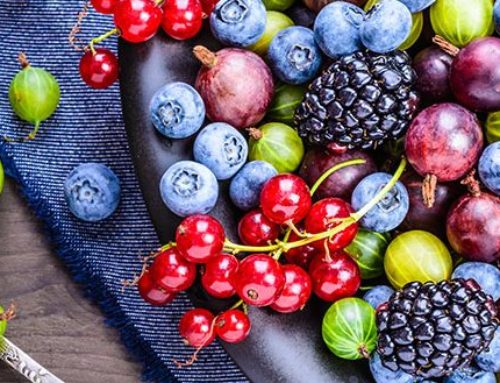 You know how important your diet is to your overall health but were you aware that certain foods can cause pain in the body? It’s true, there are foods, many of which sound healthy, that can be a real problem for pain sufferers. The real culprit is inflammation and while acute inflammation is good and helps the body heal, chronic inflammation is very bad. In fact, it’s believed that increased inflammation can contribute to serious diseases, including cardiovascular disease, arthritis, depression and even cancer.[1] By eliminating certain foods from your diet you can reduce or even eliminate the pain caused by them.
You know how important your diet is to your overall health but were you aware that certain foods can cause pain in the body? It’s true, there are foods, many of which sound healthy, that can be a real problem for pain sufferers. The real culprit is inflammation and while acute inflammation is good and helps the body heal, chronic inflammation is very bad. In fact, it’s believed that increased inflammation can contribute to serious diseases, including cardiovascular disease, arthritis, depression and even cancer.[1] By eliminating certain foods from your diet you can reduce or even eliminate the pain caused by them.
Here are 3 surprising foods responsible for pain in the body.
Nightshade Vegetables
Nightshade Vegetables (like potatoes, eggplant, tomatoes, chili and bell peppers) contain potent alkaloids, and have been linked to arthritis and inflammation.[2] Some researchers theorize that arthritis is often misdiagnosed in people who are experiencing side effects from eating nightshade fruits and vegetables.
Common Nightshades include:
- Potato;
- Tomato;
- Eggplant;
- Chili Peppers;
- Bell Peppers;
- Tomatillos;
- Goji Berries;
- Garden Huckleberries;
- ground cherries;
- cape gooseberries.[3]
Vegetable Oils
Vegetable oils come in a wide variety including soybean oil, sunflower oil, corn oil, canola oil, cottonseed oil, safflower oil and a few others.[4] Even though “vegetable oil” sounds natural enough, the process used to extract the oil isn’t. Many argue the oil was never meant for human consumption. Vegetable oils are high in Omega – 6 fatty acids which are pro-inflammatory, unlike Omega – 3 fatty acids which are anti-inflammatory.[5] A diet with an abundance of Omega – 6 fatty acids can lead to inflammation, pain and disease.
Caffeine / Coffee
This might be a tough one to swallow but caffeine is another natural substance that can cause a host of issues in the body, including pain. There have been studies showing a link between caffeinated coffee consumption and back pain [6] and a possible link between caffeinated and decaffeinated coffee and rheumatoid arthritis. Caffeine can also cause headaches,[7] muscle spasms and dehydration.[8]
Summary
If you suffer from pain it may be related to foods in your diet. Avoiding foods like nightshade vegetables, vegetable oil and coffee may help reduce or even eliminate the pain and inflammation they cause.
FREE Report – “7 Surprising Foods Responsible for Pain and Better Alternatives”
Enter your email below for a FREE Report and 4 more surprising foods that are responsible for pain in the body plus healthier alternatives that can actually help reduce your pain naturally today!
[magicactionbox]
Always seek the advice of your physician or other qualified health provider with any questions you may have regarding a medical condition or before starting a new diet or exercise program.
Resources
- Sigurdsson, A. F., MD. (2013, May 3). Inflammation and Heart Disease. Retrieved June 17, 2016, from http://www.docsopinion.com/2013/05/03/inflammation-and-heart-disease/
- Childers, N. F., Ph.D., & Margoles, M. S., M.D. (1993). An Apparent Relation of Nightshades (Solanaceae) to Arthritis. Retrieved June 17, 2016, from http://www.noarthritis.com/research.htm
- Kannall, E. (2016, January 11). List of Nightshade Vegetables & Fruits. Retrieved June 17, 2016, from http://www.livestrong.com/article/367949-list-of-nightshade-vegetables-fruits/
- Gunnars, K., BSc. (2013, August 12). 6 Reasons Why Vegetable Oils Can be Harmful. Retrieved June 17, 2016, from https://authoritynutrition.com/6-reasons-why-vegetable-oils-are-toxic/
- Calder, P. C. (2006). The American Journal of Clinical Nutrition. Retrieved June 17, 2016, from http://ajcn.nutrition.org/content/83/6/S1505.short
- McPartland, J. M., & Mitchell, J. A. (1997, January). Result Filters. Retrieved June 17, 2016, from http://www.ncbi.nlm.nih.gov/pubmed/9014959
- Gunja, N., & Brown, J. A. (2012, August). Energy drinks: Health risks and toxicity. Retrieved June 17, 2016, from https://www.mja.com.au/journal/2012/196/1/energy-drinks-health-risks-and-toxicity
- Winston, A. P., Hardwick, E., & Jaberi, N. (2005, October). Neuropsychiatric effects of caffeine | BJPsych Advances. Retrieved June 17, 2016, from http://apt.rcpsych.org/content/11/6/432.full




